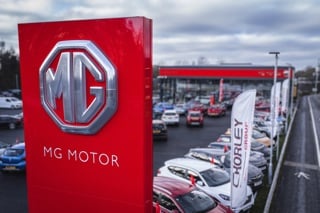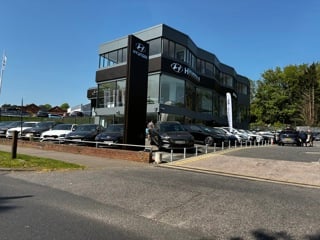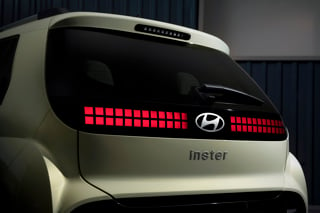Hyundai is citing improved productivity as the prime reason why the new i10 city car will offer buyers better value for money.
The new model will go on sale early next year from £8,345, the price charged for the current entry-level i10. Yet the newcomer, based on an all-new platform, is bigger, roomier, safer and in most cases better equipped.
The base model will no longer have air conditioning as standard, but does have more airbags. Quality has also substantially improved. Hyundai is billing the new i10 as an "A to B" car - A- segment pricing with the facilities of a model from the class above.
Higher up the range there are price rises of up to £400, but there is increased standard equipment which, Hyundai says, would cost buyers 10-15% more if bought as individual items.
European versions of the new i10 will be built at Hyundai's plant in Turkey, whereas the previous model was made in India. The capacity of the Turkish plant has been increased from 120,000 units a year to 200,000 to make this possible.
The new platform will also be used for the next Kia Picanto in time. This will give the Hyundai-Kia group the economies of scale which make zero or minimal price increases on the new i10 feasible, said Hyundai UK president and CEO Tony Whitehorn.
The UK is the leading market in Europe for the i10, with annual sales which have never dipped below 20,000. "We are in the top two or three in the A segment. My aim with the new model is to sell about 20,000 next year and extend the appeal of the car," says Whitehorn.
Sales of the previous model were helped by the Government's scrappage scheme in the wake of the 2008 banking crisis. But Whitehorn is not expecting scrappage buyers to trade in for the new model.
"They are people who keep their cars 10 years," he said. "We haven't even seen them for servicing - they go to the same garage down the street that they have always gone to."
Instead, Whitehorn expects the Payment Protection Insurance windfalls being paid out to many families, along with attractive PCP deals, to boost sales of the new car.
"This is a fantastic time to buy a brand new car. There are some fantastic deals throughout the industry, and we are part of that competitive set. Consumer incentives have increased by around 20% year-on-year," he said.
Hyundai UK expects to have sold between 77,000 and 80,000 cars in the UK by the end of 2013 compared with 74,000 in 2012 - despite initial forecasts that 2013 would be a year of consolidation.
But the recession in parts of Europe has freed up production for the UK, Whitehorn said. "We are getting extra cars from Europe. What we are experiencing is being experienced by all other manufacturers."


















Login to comment
Comments
No comments have been made yet.